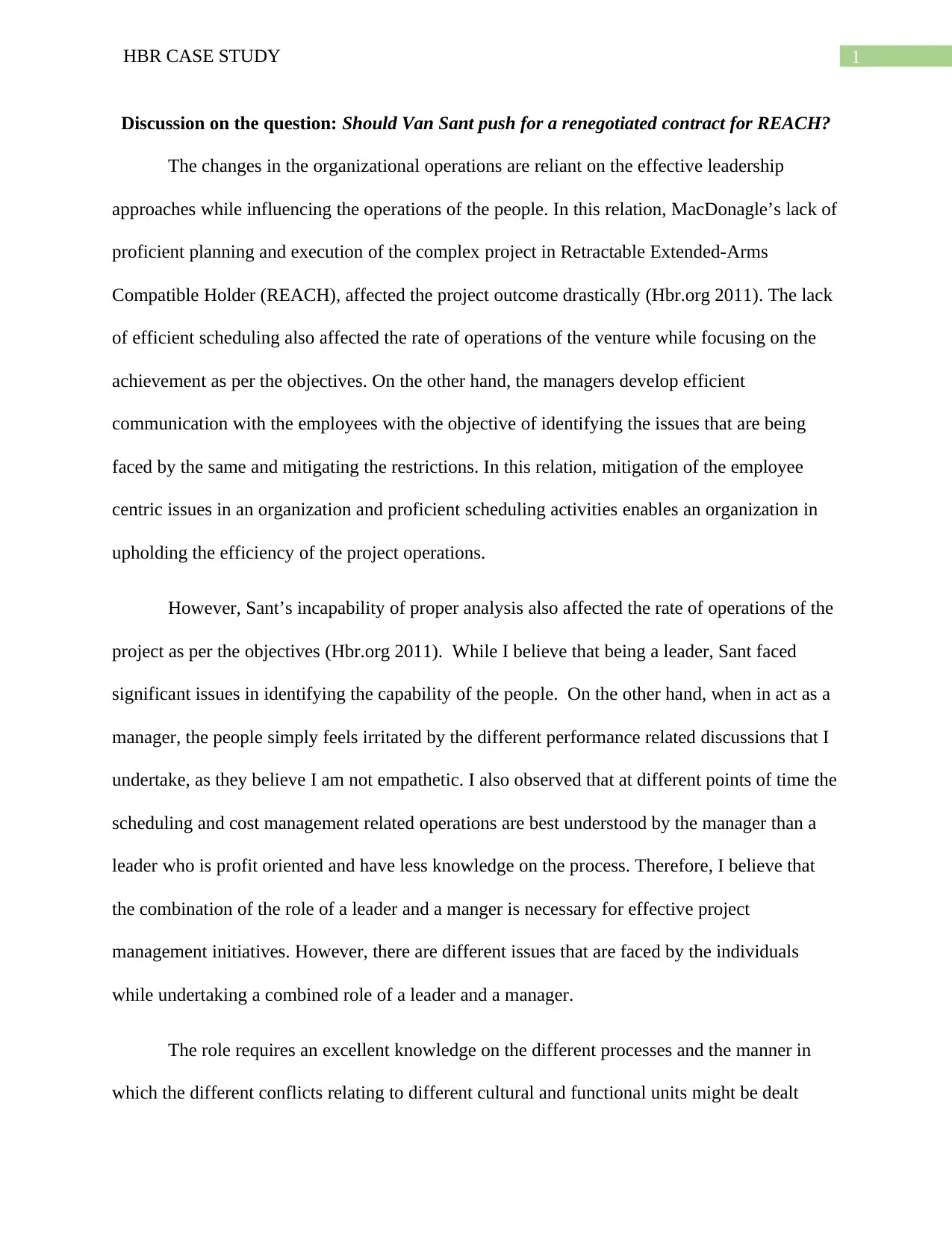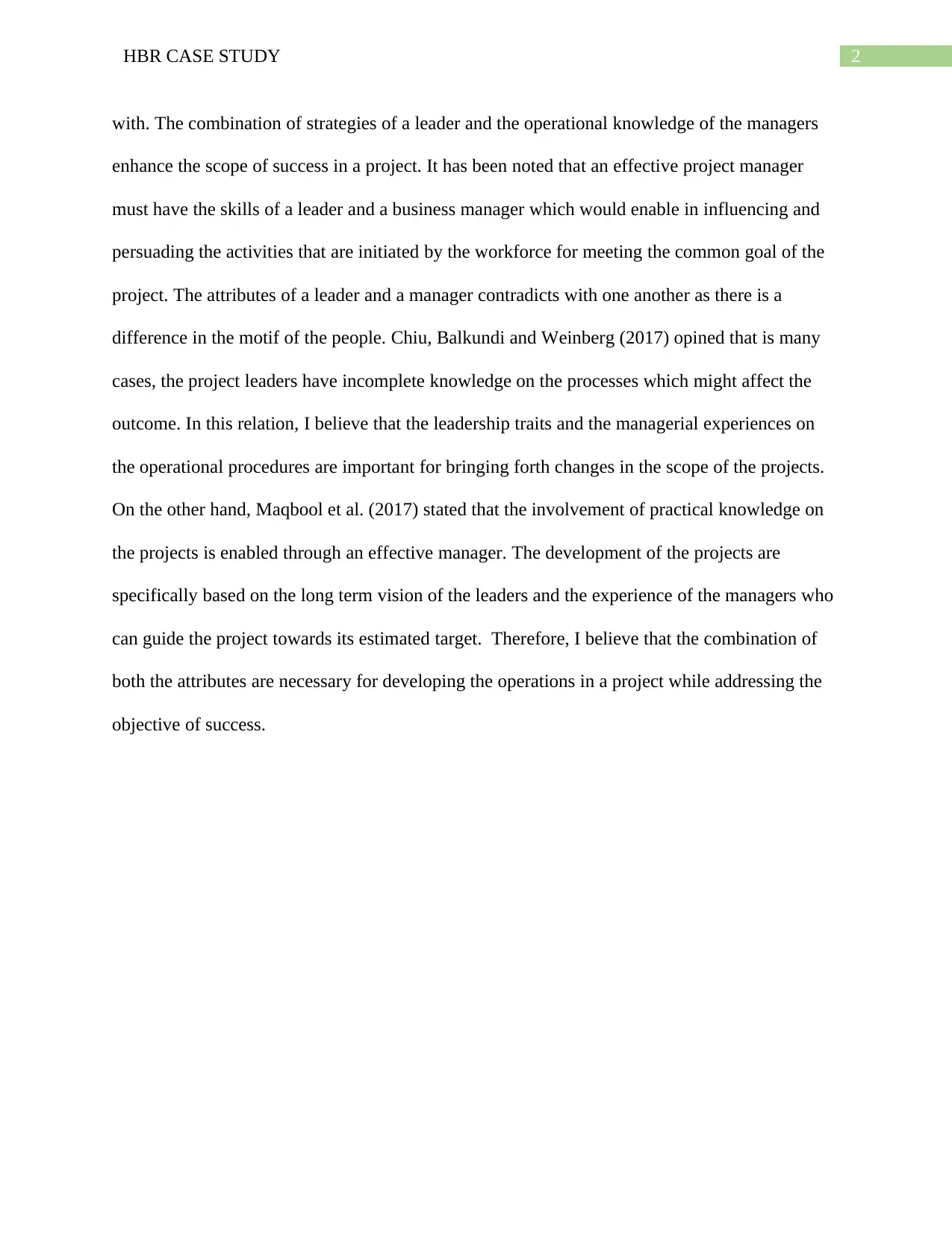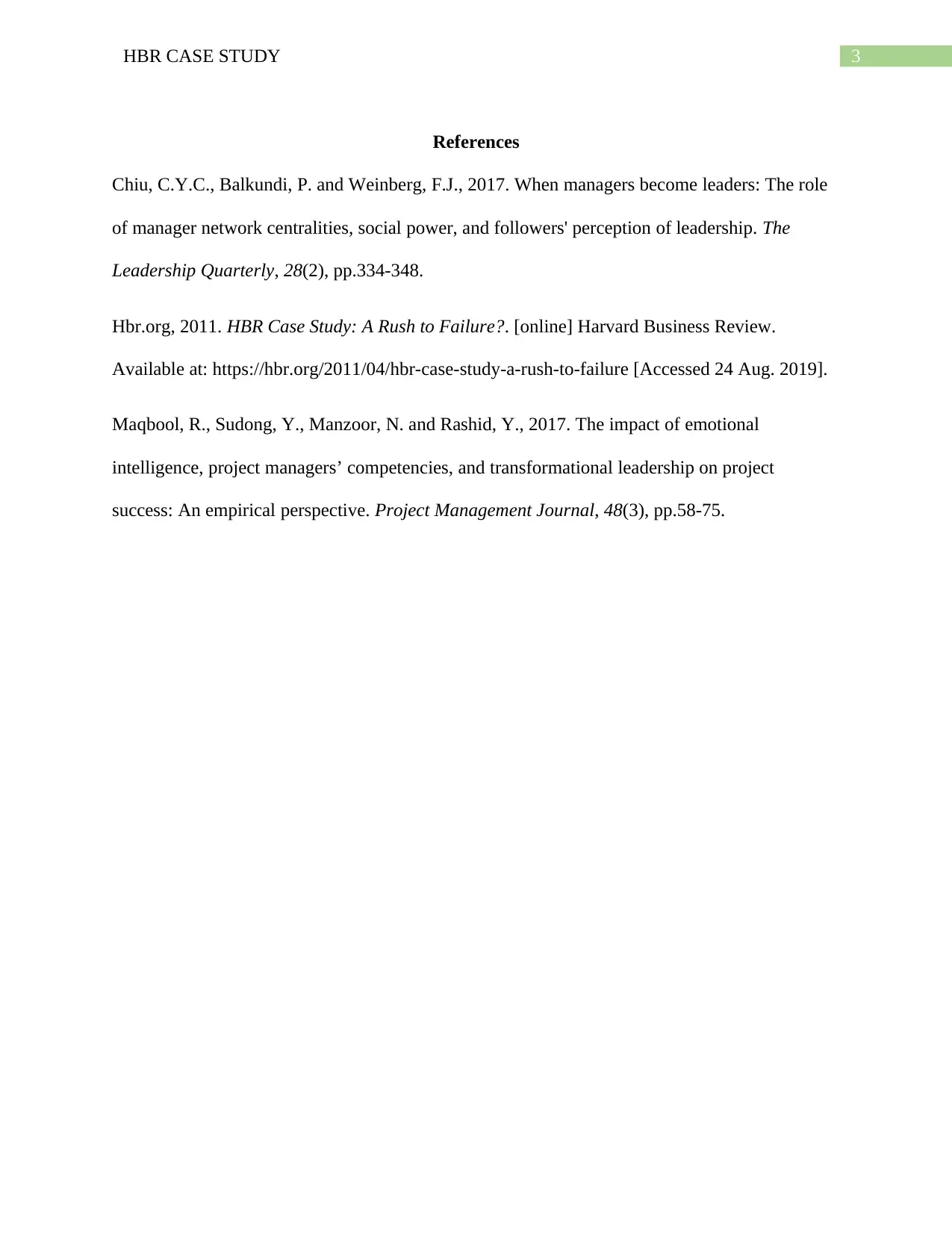Leadership in Project Management: HBR Case Study and Analysis
VerifiedAdded on 2022/10/04
|4
|754
|270
Discussion Board Post
AI Summary
This assignment presents an analysis of an HBR case study focusing on leadership within project management, specifically addressing the question of whether Van Sant should push for a renegotiated contract for REACH. The analysis emphasizes the significance of effective leadership approaches and their influence on organizational operations. The student explores the impact of MacDonagle's shortcomings in planning and execution, highlighting the importance of efficient scheduling and communication to mitigate employee-centric issues. The paper argues that the combination of leadership and managerial roles is crucial for successful project management, acknowledging the challenges in balancing these roles. The student references Chiu, Balkundi, and Weinberg (2017) and Maqbool et al. (2017) to support the argument that both leadership traits and managerial experience are essential for driving project success and achieving objectives. The document offers valuable insights into the complexities of project management leadership.
1 out of 4










![[object Object]](/_next/static/media/star-bottom.7253800d.svg)